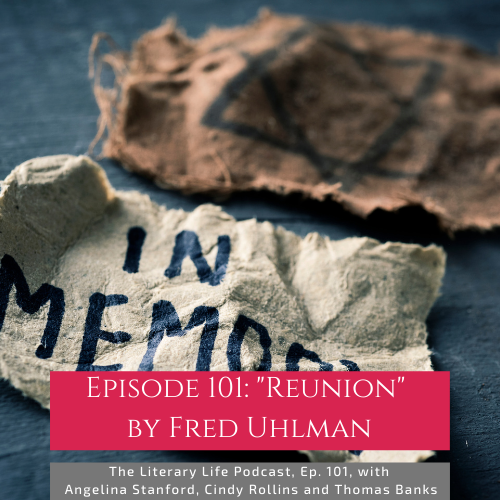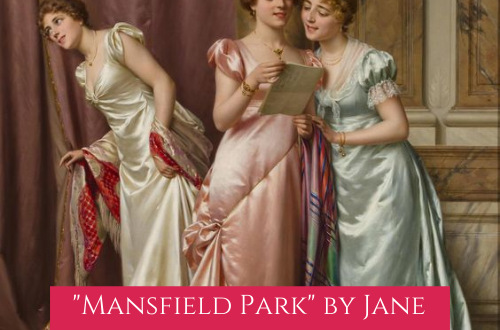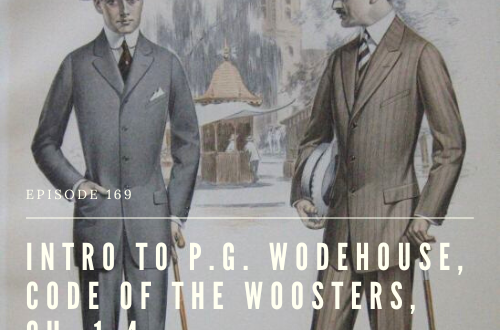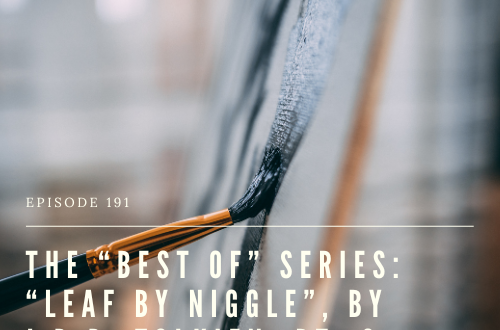
Episode 101: “Reunion” by Fred Uhlman
Welcome back to this week’s episode of The Literary Life and our discussion of Fred Uhlman’s novella “Reunion.” After they finished sharing their commonplace quotes, Cindy shares how she came across this novella and why she wanted to discuss it on the podcast. Thomas talks about the historical backdrop of the book as well as a little biographical info about the Uhlman. Angelina points out how much this story drove home the point of how assimilated the Jewish people were into European society and culture. They talk about the friendship between Hans and Konradin and their common taste in great literature. Other topics discussed were the unreality of what was happening in Germany, personal loyalty versus political loyalty, the dilemma of understanding pre-World War II Germany, and the power of a faithful life. Join us back here next week for an episode on The Literary Life of Atlee Northmore!
We are excited to announce our third annual Literary Life Back to School Online Conference! This year’s theme is Awakening: The Pursuit of True Education, and our featured guest speaker is James Daniels. The conference will take place on August 4-7, 2021, and you can learn more and register at morningtimeformoms.com.
Cindy also has some exciting announcements, including the debut of the new expanded edition of her book Morning Time: A Liturgy of Love, is now available! AND she is starting a new Charlotte Mason podcast called The New Mason Jar, set to begin airing on August 5, 2021!
Listen to The Literary Life:
Commonplace Quotes:
Literature is full of teaching, by precept and example, concerning the management of our physical nature. I shall offer a lesson here and there by way of sample, but no doubt the reader will think of many better teachings; and that is as it should be; the way such teaching should come to us is, here a little and there a little, incidentally, from books which we read for the interest of the story, the beauty of the poem, or the grace of the writing.
Charlotte Mason
I acquired a hunger for fairy tales in the dark days of blackout and blitz in the Second World War. I read early and voraciously and indiscriminately–Andrew Lang’s colored Fairy Book, Hans Andersen, King Arthur, Robin Hood, and my very favorite book, Asgard and the Gods, a German scholarly text, with engravings, about Norse mythology, which my mother had used as a crib in her studies of Ancient Norse. I never really like stories about children doing what children do–quarreling and cooking and camping. I like magic, the unreal, the more than real. I learned from the Asgard book that even the gods can be defeated by evil. I knew nothing about the Wagnerian Nordic pageantry of the Third Reich. Nor did I have any inkling that the British occupying forces in Germany after the war were going to ban the Grimms because they fed a supposedly bloodthirsty German imagination. Indeed, I retreated into them from wartime anxieties.
A. S. Byatt
Every fairy tale worth recording at all is the remnant of tradition possessing true historical value; historical, at least, insofar as it has arisen out of the mind of a people under special circumstance, and risen not without meaning, nor removed altogether from their sphere of religious faith.
John Ruskin
Sonnet 104
by William Shakespeare
To me, fair friend, you never can be old,
For as you were when first your eye I eyed,
Such seems your beauty still. Three winters cold
Have from the forests shook three summers’ pride,
Three beauteous springs to yellow autumn turned
In process of the seasons have I seen,
Three April perfumes in three hot Junes burned,
Since first I saw you fresh, which yet are green.
Ah, yet doth beauty, like a dial-hand,
Steal from his figure, and no pace perceived;
So your sweet hue, which methinks still doth stand,
Hath motion, and mine eye may be deceived:
For fear of which, hear this, thou age unbred:
Ere you were born was beauty’s summer dead.
Book List:
Reunion by Fred Uhlman
Ourselves by Charlotte Mason
Possession by A. S. Byatt
The Children’s Book by A. S. Byatt
Paris, 1919 by Margaret MacMillan
Letters to a Young Poet by Rainer Maria Rilke (not recommended)
The Great Gatsby by F. Scott Fitzgerald
Support The Literary Life:
Become a patron of The Literary Life podcast as part of the “Friends and Fellows Community” on Patreon, and get some amazing bonus content! Thanks for your support!
Connect with Us:
You can find Angelina and Thomas at HouseofHumaneLetters.com, on Instagram @angelinastanford, and on Facebook at https://www.facebook.com/ANGStanford/
Find Cindy at morningtimeformoms.com, on Instagram @cindyordoamoris and on Facebook at https://www.facebook.com/cindyrollins.net/. Check out Cindy’s own Patreon page also!
Follow The Literary Life on Instagram, and jump into our private Facebook group, The Literary Life Discussion Group, and let’s get the book talk going! http://bit.ly/literarylifeFB
Subscribe to The Lit Life:








